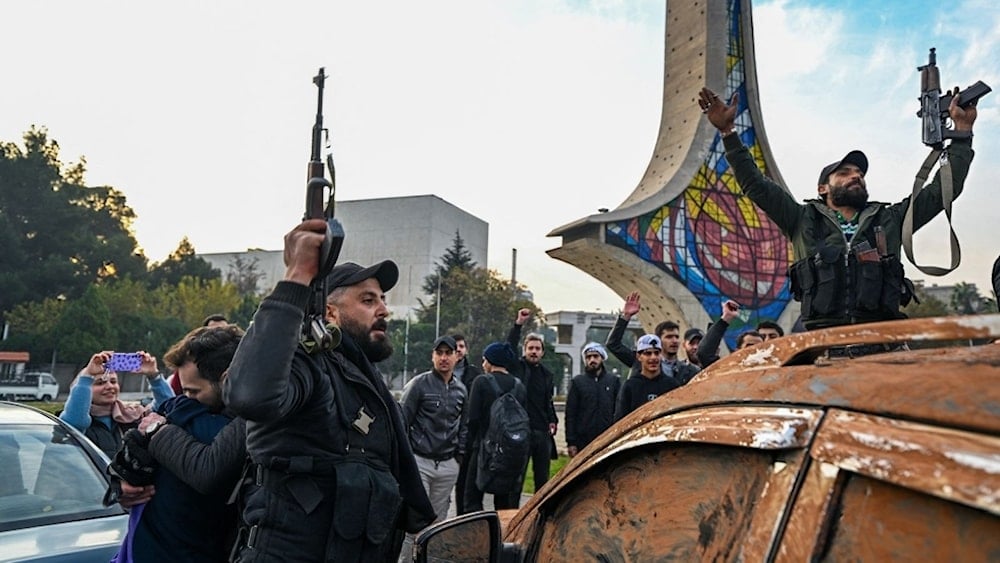Mearsheimer: Turmoil ahead for Syria
John Mearsheimer has criticized the media for attempting to sanitize the image of HTS leader Mohammed al-Jolani, who remains "a wanted terrorist" with a $10 million bounty on his head.
-

New regime forces celebrate the fall of the Syrian government at Umayyad Square in Damascus on December 8. (AFP)
Syria is expected to experience a prolonged period of chaos following the collapse of Bashar Assad’s government, according to John Mearsheimer, a political science professor and theorist at the University of Chicago.
In an appearance on Going Underground published Saturday, Mearsheimer suggested that it is unlikely that a "coherent government" will form soon in Damascus capable of controlling the entire country.
“How this all plays out moving forward is almost impossible to say, other than it looks like there will be considerable chaos in Syria for the foreseeable future,” he remarked.
The Political Science academic at the University of Chicago also referred to the regime change as a “short-term success” for those supporting the opposition, primarily the US.
“We [the US] basically threw our lot in with a number of Al-Qaeda and ISIS operatives and they won,” Mearsheimer stated, criticizing the media for attempting to clean up the image of HTS leader Mohammed al-Jolani, who remains "a wanted terrorist" with a $10 million bounty on his head.
“These journalists understand full well, most Americans understand… that the US is supporting terrorists,” he said.
Regarding the fall of the Assad government, Mearsheimer suggested that Syria’s military had long-standing critical issues that Assad failed to address, leading to a "hollowed-out" military unable to withstand the new regime forces.
Although he argued that the loss of Assad’s regime is not a major setback for Russia, Mearsheimer warned that it could have “existential” consequences for Iran, potentially accelerating its pursuit of nuclear weapons. However, he noted that Iran has yet to indicate any immediate steps in that direction, and it would still take several years to develop such capabilities.
UN envoy urges action to prevent Syria's collapse during crisis talks
Geir Pedersen, the UN's special envoy for Syria, called Saturday on foreign powers to prevent the collapse of Syria's critical institutions in the aftermath of President Bashar al-Assad's downfall.
The appeal came during a crisis conference held in Aqaba, Jordan, where diplomats from the US, Arab nations, Turkey, and the EU gathered to discuss the ongoing crisis.
Pedersen emphasized the importance of safeguarding state institutions and ensuring the swift delivery of humanitarian aid.
"We need to make sure that state institutions do not collapse, and that we get in humanitarian assistance as quickly as possible," Pedersen said, adding, "If we can achieve that, perhaps there is a new opportunity for the Syrian people."
During a meeting with US Secretary of State Antony Blinken, Pedersen reiterated his support for a "credible and inclusive" political process to establish Syria's next government. Blinken, who has been engaging with leaders in Jordan, Turkey, and Iraq, underscored the importance of an "inclusive" solution that represents Syria's diverse ethnic and religious communities.
Blinken also highlighted the UN's essential role, stating that the organization "plays a critical role" in providing humanitarian aid and protecting minorities in Syria.

 3 Min Read
3 Min Read








